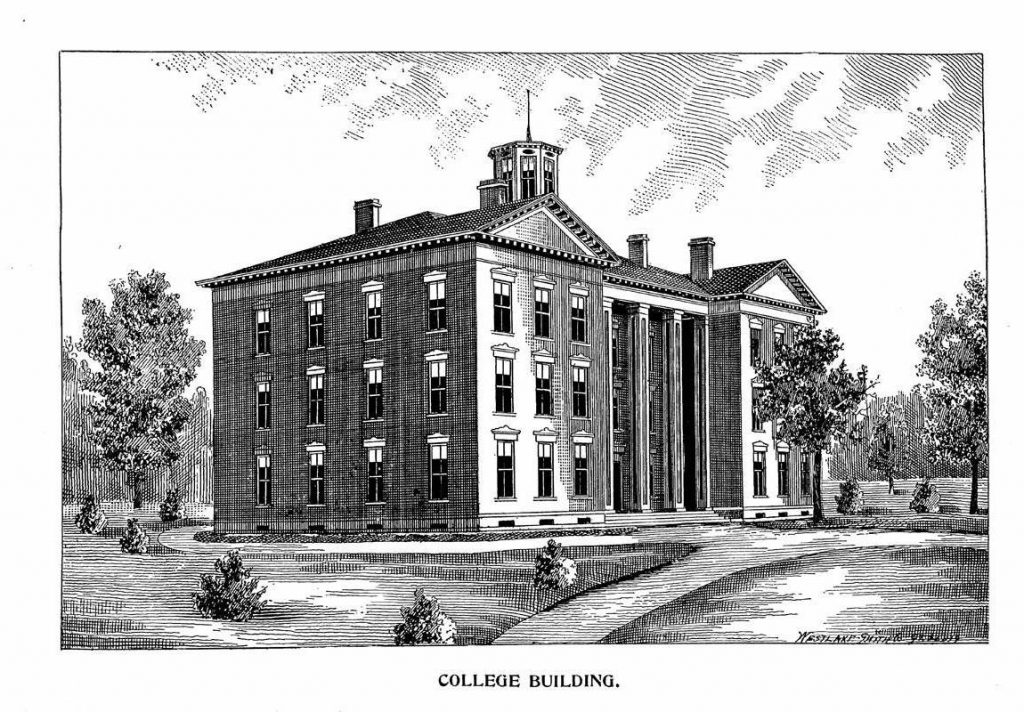
Dr. Christopher Wilkins – associate professor of history at William Jewell College – is teaching a class on Jewell’s history with slavery this semester. While the school prides itself on being a radically inclusive and accessible environment for students today, it was a different sort of institution in the past.
In 1849, the College was founded by members of the Baptist Convention and other prominent members of the Clay County community. At the same time, the post-Missouri Compromise state allowed slavery, and many people in Clay County owned enslaved people.
The sheer magnitude of slavery within this county is a history not often taught or known by its residents. For example, in 1849, over 25 percent of Clay County’s population consisted of enslaved people. That number does not exclude those who founded the College.
Wilkins’ course, HIS 204: Slavery, Memory, and Justice, aims to investigate slavery in general but also how it specifically relates to William Jewell College’s history. Along with his students, Wilkins plans to research the exact magnitude of slavery as it relates to the school and then publish the results.
Questions the class will research include: how many of the founders or early faculty members owned slaves, if any of the students owned slaves, how many members of the Jewell community allied with either the Confederacy or the Union and whether or not there were any anti-slavery members of the Jewell community.
This research will be hard to face, and many of the answers will likely not reflect Jewell’s current commitment to equal access for all. However, knowing our history and correctly rectifying our mistakes is an important lesson in conciliation and critical thinking. An ongoing commitment to studying and appropriately dealing with the past is necessary for any institution that claims to be anti-racist and radically inclusive.
The Hilltop Monitor had the chance to briefly interview Wilkins about the course, and that conversation is below. As well, the Monitor will be following the class’s findings and publishing investigations into the subject.
Monitor: What made you want to pursue this class?
Wilkins: In the past year, Jewell students’ interest in studying slavery and its legacy has reached a level that I have not seen before in the decade I have taught here. I often teach a course on the global history of slavery and abolitionist movements, and students’ interest in those topics has generally been strong.
But after intense conversations with students and colleagues last fall, it became clear to me that there are many people at Jewell who are deeply committed to learning more about slavery’s significance not only in U.S. history, but also in the history of Jewell, and who recognize that the way we think about our past matters a great deal for how we view the present and shape our aspirations for the future. I wanted to teach this course so that my students and I could contribute to these crucial conversations.
How did the administration at Jewell react to this class?
The administration has been supportive of research on the questions at the heart of the course and granted me a sabbatical next fall to research and write on this topic. That support was reinforced by Dr. Rodney Smith’s visit to our class and enthusiasm regarding how the work we are doing in the course contributes to Jewell’s efforts to promote diversity and inclusion.
What, in your view, is the most important focus of the class?
In addition to the specific focus on better understanding the history of slavery’s influence on Jewell, there are three major points that I want students to take away from the course.
First, they need to recognize that having informed conversations about controversial issues from the past is vital because those conversations can help build a more just community at Jewell (and beyond) in which everyone’s experiences matter and everyone’s voices are heard.
Second, these conversations have to be based on thorough, detailed and accurate historical research, motivated by the desire to find the truth, regardless of where those facts lead.
Third, the experiences of other colleges investigating their institutions’ connections to slavery show that the work a community does to address its history should not end with teaching a single course or writing a college-wide report. Our engagement with these issues needs to be marked by an ongoing commitment, on an institutional level, to continue to study a wide range of issues involving slavery, historical memory, and justice and to have public conversations about the relevance of those issues to the present and future. I think this course should be only the beginning of a larger project at Jewell.
The Hilltop Monitor plans to work alongside Wilkins and the class to pursue investigations into Jewell’s history surrounding slavery and will publish those investigations this semester.
